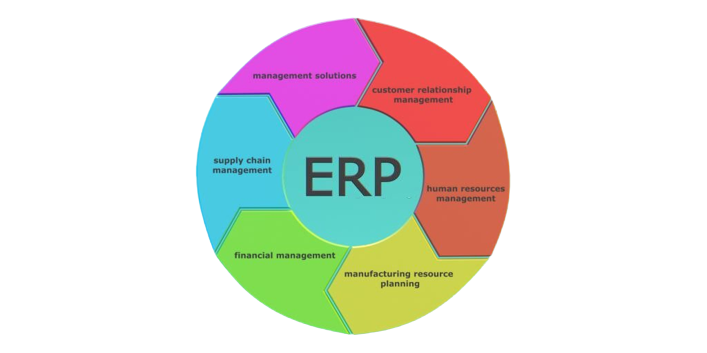As its name suggests, cloud enterprise resource planning software is a business process management tool used to manage a variety of crucial corporate operations, including sales, purchases, inventories, manufacturing, human resources, finances, and many more.
Cloud ERP software is most beneficial and lucrative for small and medium-sized organizations since it significantly lowers startup costs and overall operating costs. A corporate organization may access crucial company activities from anywhere in the world at any time thanks to cloud-based ERP software.
With the proper cloud-based ERP system, company efficiency might be quickly boosted for any corporation.
How Do I Choose the Best Cloud ERP Software?
Every firm has heard of and perhaps even uses ERP software. Nevertheless, does the ERP software justify the cost? As you are aware, a single Cloud ERP solution has the power to drastically change your company.
The issues you could be having with your Premise ERP include the following:
- To handle your ERP processes, you must employ an IT support specialist
- The cost of running your ERP would be quite significant
- The amount of time your ERP needs to deploy during customization should likewise be quite long
- Moreover, ERP maintenance and administration time may be quite high
- The cost of the infrastructure and hardware would also be quite considerable
- Being bombarded by ongoing bug and error problems
Using cloud ERP solutions is the best method to steer clear of all these problems. Better access to all company processes is also made possible by cloud-based ERP software at a very affordable price.
How to anticipate consumer behavior with a cloud ERP solution?
For centuries, retailers have yearned to accurately predict their customers’ buying patterns.
Now that we have highly developed computer systems, deep learning, and the capacity to store enormous quantities of data, we can start to analyze that data to uncover patterns in how individuals behave.
The fact that we currently possess this skill raises a crucial query. Which cutting-edge computer technology gives today’s retailers the greatest consumer behavior analytics? While there are many differing viewpoints, many merchants think that a contemporary, cloud-based enterprise resource planning (ERP) system with integrated customer relationship management (CRM) capabilities is the solution.
Retailers who have deployed CRM-embedded cloud ERP software have found they can:
- Find out what customers prefer
- Provide quick access to updated contact information and client history.
- Give each consumer a unique experience
- Increasing their CRM abilities
Full visibility into your customer preferences and buyer’s journey:
To put it simply, a cloud ERP system links an organization from beginning to finish, optimizing workflows and automating corporate-wide business activities. A similar ERP solution serves as a central database, collecting, syncing, storing, and analyzing data from every team inside the organization. Team members have instant access to the precise information they need to do their duties whenever and wherever they are.
A cloud ERP and integrated CRM system for retailers give them visibility into every step of the customer journey, from the first contact with the business to the final purchase choices. Such total transparency discloses buying habits, such as:
- What goods a customer purchase
- How many of those items they are purchasing
- How frequently do people purchase those goods
When combined, this and other customer data may help you tailor your interactions with each client and address any issues that might discourage consumers from clicking the “complete purchase” button.
Increase the Scope of Your CRM:
You may be wondering if you even need cloud ERP software if you currently use a specialized customer relationship management (CRM) system. But, comprehensive cloud ERP software provides important, business-enhancing benefits.
The customer funnel can only be partially reached by a solo CRM system. It aids in prospect identification, the creation of marketing campaigns, and the recording of lead contacts with your company, but it doesn’t offer information on the financial and accounting aspects of transactions.
You can monitor client purchase behavior and evaluate the profitability of various items using an integrated ERP and CRM system. You’ll be able to see which goods are profitable and which are not, and you’ll have access to both customer behavior analytics and reporting tools.
The final word is that the revenue is increased, sales are improved, and individualized customer service is driven by an ERP system with integrated CRM software.
What distinguishes cloud ERP from traditional or on-premise ERP as being more advantageous?
When compared to traditional or premise-based ERP, cloud-based ERP software is more adaptable and dependable.
The cloud-based ERP software has a great degree of scalability as well. The benefits of cloud-based ERP software include the following:
- Infrastructure costs, which include hardware and system costs, are drastically decreased, which lowers the initial ERP cost.
- As you simply need to pay for the functionality of your Cloud ERP module, ownership or license costs for Cloud ERP are extremely minimal.
- Moreover, research has shown that the cost of cloud ERP is 50% lower than that of traditional ERP or on-premise ERP.
- Planning for cloud ERP is significantly simpler than for on-premise ERP.
- As the program can be quickly accessible online and doesn’t need the assistance of a qualified IT support specialist to operate, the support costs for the ERP are significantly lowered.
- Comparing Cloud ERP to Premise ERP, significant IT savings are achieved.
- Updates to the premise ERP take a long time to implement. Nevertheless, cloud ERP software implementation takes very little time and can be done at any time and from any location.
- Improved ERP cloud software performance that can quickly adapt to any business demand
- Flexibility to expand user numbers as the firm expands
- Just the expense of computing resources is associated with cloud ERP software.
- Better security because the data is kept on the cloud rather than locally
- Improved server space distribution
- Also accessible are single-tenancy and multiple-tenancy models for cloud-based ERP software.
- Public, private, and hybrid clouds can all be utilized with cloud-based ERP software.
Give Customers a Customized Experience:
Your success depends on offering a tailored customer experience (CX). Consumers in today’s fiercely competitive market have a wide range of buying alternatives at their disposal, which means that if they don’t have a flawless, trouble-free experience, they may swiftly move from one retailer to the next.
The majority of merchants understand how important CX is and strive hard to deliver a positive experience. Yet to differentiate yourself from the competition, you must make every customer’s purchasing experience unique. Although it may seem difficult, using the data from a cloud ERP solution makes it possible.
A cloud-based ERP system with inventory management software provides you with a 360-degree perspective of your business and equips you to collect data from many sources. Each team member will have access to the pertinent, current information they need to make educated decisions, regardless of their department—sales, marketing, operations, finance, and more.
Every team member will have access to the same version of each customer’s data thanks to the system, enabling your company to:
- A quick and easy buying process based on specific information and preferences
- Great customer service with team members promptly and effectively addressing queries and issues
- Customers get the precise things they want, at the pricing they want, delivered when they want
- Personalized emails and suggestions based on previous searches
Also See: FSM Software
These customer-focused advantages significantly increase the likelihood of a successful CX and retail operation. The client is the sole boss. And by spending his money elsewhere, they can dismiss everyone in the company, from the chairman on down.










